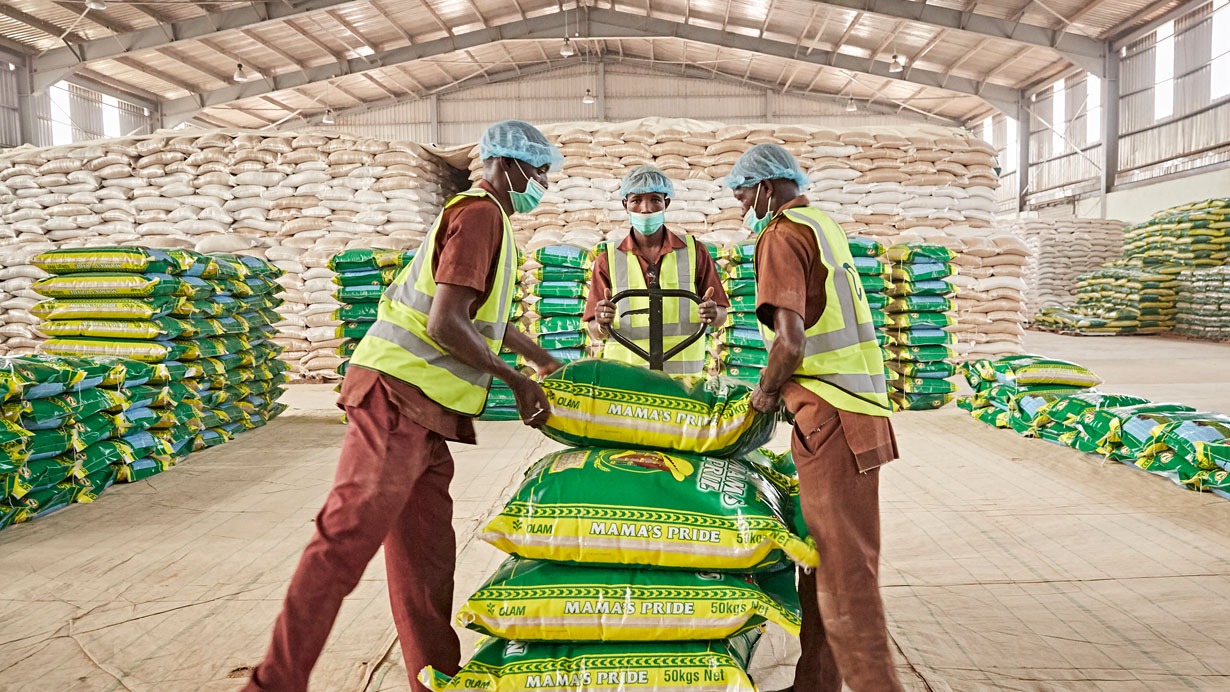
There is a huge gap between recent allegations made against Olam and the reality of the firm’s unwavering commitment to Nigeria and the development of its agriculture sector. The agribusiness firm has been present in Nigeria for more than three decades, modernizing the agriculture sector and providing jobs for thousands of Nigerians.
Over the weekend, the company was accused by the Daily Nigerian and PrimeBusiness Africa of exchange fraud relating to the establishment of shell companies – a claim, which is unfounded and false. In a statement released today, Olam said that it does not have a “network of shell companies” and that all subsidiaries are formed for “proper corporate purpose”, audited by Ernst & Young, the global accounting firm.
It also pointed to an exemplary track record in the country, having established operations in Nigeria in 1989. The firm employs more than 4,500 people across various sectors of the economy and operates over 21 manufacturing plants, directly benefiting 140,000 farmers across the country. It has invested hundreds of millions of dollars in Nigeria and is a key provider of foreign direct investment (FDI).
In fact, Olam’s success in Nigeria, its first country of operations in Africa, is what eventually led to the company’s transformation into one of the largest agribusiness firms in the world with interests in 67 countries.
Its success is based on delivering value to farmers, customers and consumers through best-in-class operational capabilities and a long term commitment to develop Nigeria’s agricultural supply chains and improve food security.
In the area of rice production, Olam Agri operates a 4,451 hectares fully integrated rice farm on greenfield site in Nasarawa State and supports a combined 13,500 hectares of rice production under its outgrower programme for local rice growing communities. Also, for sesame, Olam pioneered domestic sesame hulling and exports in Nigeria as it established a state-of-the-art dry hulling and sorting plant in Shagamu in 2014.
Similarly, in line with its commitment to Nigeria, in 2010, Olam Agri acquired Crown Flour Mill, which at that time had two operating factories in Lagos and Warri.
In 2021, Olam, and its subsidiary, Crown Flour Mill Limited (CFM), launched a N300 million ($750,000) 10-year project to set up community seed enterprises for Nigerian farmers to increase their production of wheat.
This wheat value chain project strengthened agricultural production in northern Nigeria’s wheat farming belt and underlined Olam’s commitment to supporting the country’s goal of achieving self-sufficiency in food production. The project also engaged at least 10 female farmers’ associations to become true drivers of change for their communities by training women to lead community-based seed enterprises.
Olam has also made substantial investments in cotton, soybean, aquaculture, integrated feed and poultry, in Nigeria, providing job opportunities in its host communities.
The allegations of $50 billion and $34 billion fraud made by the Daily Nigerian and Prime Business, seem thoroughly baseless given that both figures are several times more than the company’s total turnover over the last 7 years.
“Based on the Olam Group’s audited financial statements, which are publicly available, the Olam Group’s cumulative turnover in Nigeria (including all export, import and domestic sales) for FY 2015 to FY2022 was US$14 billion in total, and for the same eight (8)-year period, the value of capital importations (via Certificates of Capital Importations) for the entire Olam Group in Nigeria was US$2.4 billion in total. The references in the news articles to “$50 billion” and the sum of $34 billion “funneled… under… capital importation” by Olam are thus manifestly inaccurate and designed to be misleading,” the press release said.
The firm also noted that Olam Nigeria has responded to various legitimate requests for information by the relevant Nigerian authorities, and will cooperate with any legitimate requests for information or assistance from relevant Nigerian authorities.
To conclude, Olam has an outstanding track record in Nigeria, having invested millions of dollars in the agriculture sector to create wealth that is shared by thousands of people across the country.
Baseless allegations by journalists will put thousands of jobs at risk, reversing the gains that have been made from Olam’s commitment to help develop Nigeria and improve the lives of its people over the last 30 years.






